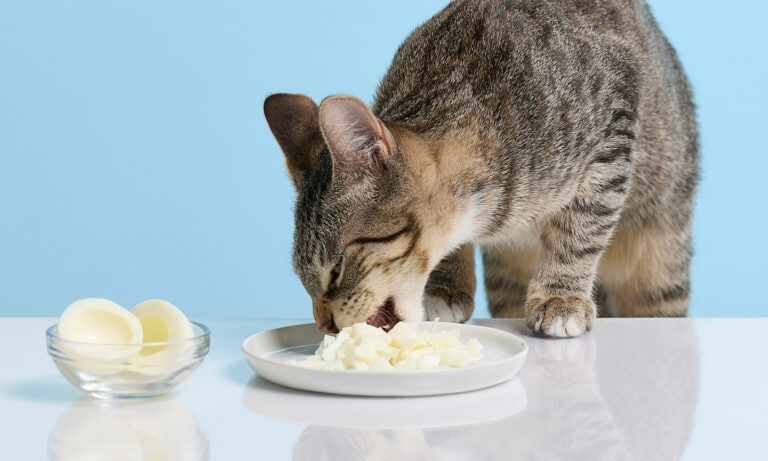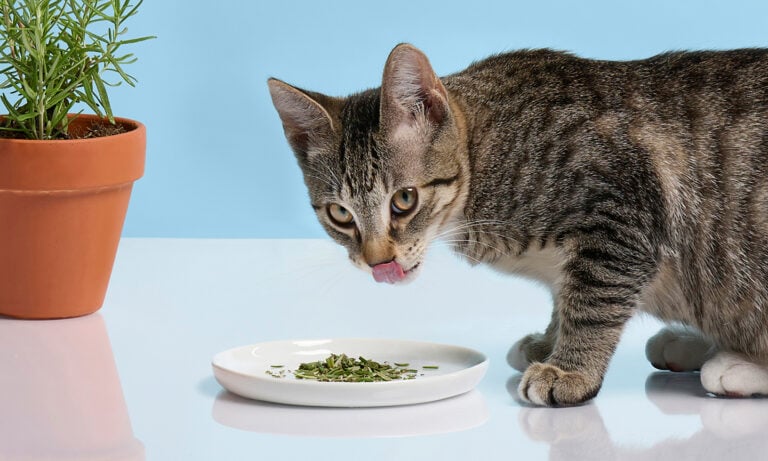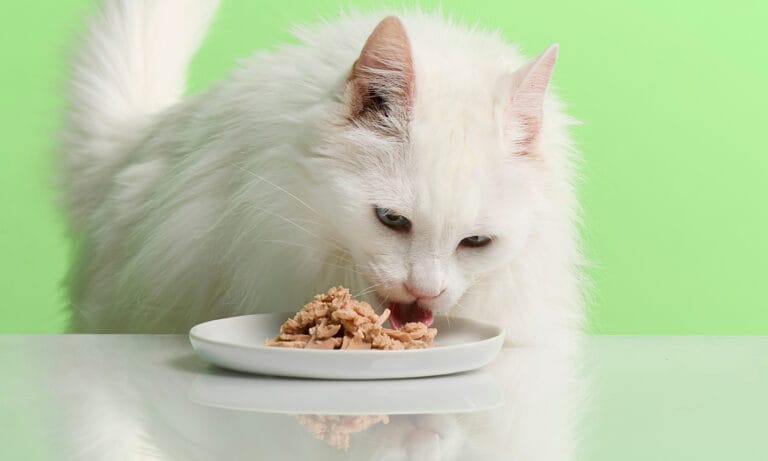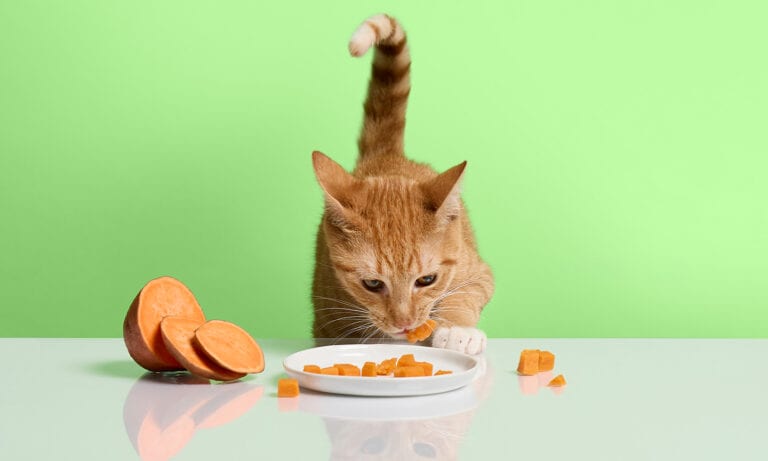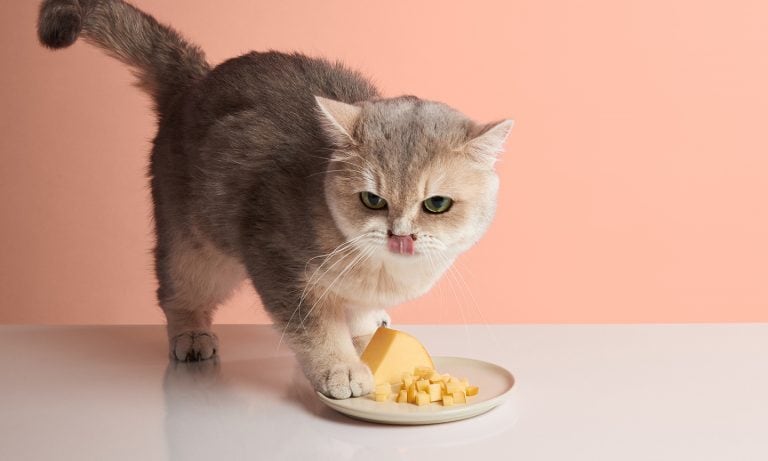Refreshing, juicy and flavorful, oranges are a favorite for many of us. Not to mention they’re bursting with vitamin C, calcium and antioxidants, which support human wellness. But what about our feline friends? Can cats eat oranges?
Sorry, kitties—oranges are one of several human foods cats should never eat. Oranges and other citrus fruits contain essential oils and other compounds that are bad for cats.
We spoke to a vet expert to understand the dangers of oranges for cats and what to do if your furball gets their paws on this juicy fruit.
Expert input provided by Dr. Desiree Luevano, DVM, owner and medical director of GoodVets in Dallas.
Can Cats Eat Oranges?
Click to jump to each section.
Why Are Oranges Unsafe for Cats?
There are a few key reasons oranges are unfit for our whiskered pals.
Toxic Compounds
Oranges, like other citrus fruits, contain essential oils and compounds that can be harmful to cats. The main toxic compounds in oranges are limonene and linalool, which are found in the peel.
High Sugar
The high sugar content in oranges can be harmful to cats. Unlike humans, cats are obligate carnivores, meaning their bodies are optimized for a high-protein, low-carbohydrate diet. Their systems are not designed to process sugars efficiently.
High sugar content can be especially problematic for cats who are diabetic or pre-diabetic, as it can lead to spikes in blood sugar levels. Even for non-diabetic cats, frequent ingestion of sugar can contribute to weight gain and obesity, which can increase the risk of developing other health problems like joint issues or cardiovascular disease.
Peel and Seeds
The peel and seeds of oranges contain chemicals called psoralens. The flesh also contains these chemicals.
Psoralens can induce skin sensitivity to sunlight, which might lead to redness, irritation or blisters after your cat enjoys a sunny day outside.
Consuming the peel can also cause choking or a gastrointestinal blockage. The indigestible peel can become lodged in a cat’s throat or intestinal tract. This obstruction can be fatal if not promptly treated.
Acidic
Oranges are acidic, which can cause an upset stomach in cats, leading to discomfort, diarrhea or vomiting.
Signs Your Cat Has Eaten an Orange
If your cat ingests a tiny bit of the flesh of an orange, they’ll most likely just get an upset stomach. But in the unlikely event your cat eats a larger quantity of orange flesh, you may see more symptoms, like vomiting and diarrhea.
If your cat eats the peel, they may experience the following symptoms:
- Vomiting
- Diarrhea
- Skin irritation
- Depression of the central nervous system
What To Do if Your Cat Eats Oranges
If your cat sneaks a little nibble of orange flesh, don’t panic. It’s quite uncommon for cats to experience severe illness from consuming citrus flesh. The potent scent of citrus fruits naturally deters most cats, so it’s unlikely they would consume enough to cause harm.
For the same reason, it’s rare for cats to consume orange peel. A cat might be more likely to consume an orange seed, stem or leaf, which, according to the ASPCA, can also be harmful to cats.
If you suspect your cat has ingested any part of an orange, observe them closely. If you notice any of the above symptoms, or if you’re unsure how much orange your cat ingested, contact your veterinarian immediately. They can advise you on what to do next, which may include bringing your cat to the clinic for treatment.
You can also call an animal poison helpline for advice, including:
- ASPCA’s Animal Poison Control Center (APCC) at 888-426-4435
- Pet Poison Helpline at 855-764-7661
Fruits Safe for Cats
While citrus fruits like oranges are a no-go for cats, there are other fruits generally considered safe for cats to consume in small amounts.
Cat-safe fruits include:
- Strawberries
- Blackberries
- Blueberries
- Raspberries
- Apples
- Mangos
- Watermelon
- Bananas
Always remember to remove seeds, pits and cores before offering mangoes, watermelon and apples to your cat. The apple core can pose a choking hazard, and both apple and watermelon seeds (as well as the mango pit) can be toxic. And don’t give them much. A little nibble as an occasional treat is enough.
FAQs About Oranges and Cats
Q:
Can cats have orange juice?
Q:
Can cats eat mandarin oranges?
Q:
What happens if cats eat the orange peel?
Q:
Are oranges safe for cats to smell?
Q:
What are the benefits of cats eating oranges?
Q:
What fruit is poisonous to cats?
Can cats eat these other human foods?
Share:



